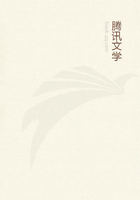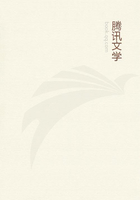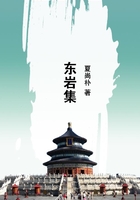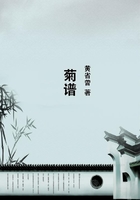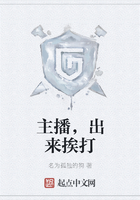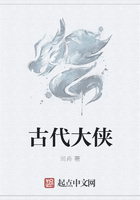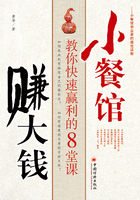Down the Columbia to Tidewater The voyagers were now drifting down the Columbia River, and they found the way impeded by many rapids, some of them very dangerous.
But their skill in the handling of their canoes seems to have been equal to the occasion, although they were sometimes compelled to go around the more difficult rapids, making a short land portage.
When they had travelled about forty miles down the river, they landed opposite an island on which were twenty-four houses of Indians; the people, known as the Pishquitpahs, were engaged in drying fish.
No sooner had the white men landed than the Indians, to the number of one hundred, came across the stream bringing with them some firewood, a most welcome present in that treeless country.
The visitors were entertained with presents and a long smoke at the pipe of peace. So pleased were they with the music of two violins played by Cruzatte and Gibson, of the exploring party, that they remained by the fire of the white men all night.
The news of the arrival of the white strangers soon spread, and next morning about two hundred more of the Indians assembled to gaze on them. Later in the day, having gotten away from their numerous inquisitive visitors, the explorers passed down-stream and landed on a small island to examine a curious vault, in which were placed the remains of the dead of the tribe.
The journal says:--"This place, in which the dead are deposited, is a building about sixty feet long and twelve feet wide, formed by placing in the ground poles or forks six feet high, across which a long pole is extended the whole length of the structure; against this ridge-pole are placed broad boards and pieces of canoes, in a slanting direction, so as to form a shed.
It stands cast and west, and neither of the extremities is closed.
On entering the western end we observed a number of bodies wrapped carefully in leather robes, and arranged in rows on boards, which were then covered with a mat. This was the part destined for those who had recently died; a little further on, bones half decayed were scattered about, and in the centre of the building was a large pile of them heaped promiscuously on each other.
At the eastern extremity was a mat, on which twenty-one skulls were placed in a circular form; the mode of interment being first to wrap the body in robes, then as it decays to throw the bones into the heap, and place the skulls together.
From the different boards and pieces of canoes which form the vault were suspended, on the inside, fishing-nets, baskets, wooden bowls, robes, skins, trenchers, and trinkets of various kinds, obviously intended as offerings of affection to deceased relatives.
On the outside of the vault were the skeletons of several horses, and great quantities of their bones were in the neighborhood, which induced us to believe that these animals were most probably sacrificed at the funeral rites of their masters."
Just below this stand the party met Indians who traded with tribes living near the great falls of the Columbia. That place they designated as "Tum-tum," a word that signifies the throbbing of the heart.
One of these Indians had a sailor's jacket, and others had a blue blanket and a scarlet blanket. These articles had found their way up the river from white traders on the seashore.
On the twenty-first of October the explorers discovered a considerable stream which appeared to rise in the southeast and empty into the Columbia on the left. To this stream they gave the name of Lepage for Bastien Lepage, one of the voyageurs accompanying the party. The watercourse, however, is now known as John Day's River. John Day was a mighty hunter and backwoodsman from Kentucky who went across the continent, six years later, with a party bound for Astoria, on the Columbia. From the rapids below the John Day River the Lewis and Clark party caught their first sight of Mount Hood, a famous peak of the Cascade range of mountains, looming up in the southwest, eleven thousand two hundred and twenty-five feet high.
Next day they passed the mouth of another river entering the Columbia from the south and called by the Indians the Towahnahiooks, but known to modern geography as the Des Chutes, one of the largest southern tributaries of the Columbia. Five miles below the mouth of this stream the party camped.
Near them was a party of Indians engaged in drying and packing salmon.
Their method of doing this is thus described:--"The manner of doing this is by first opening the fish and exposing it to the sun on scaffolds. When it is sufficiently dried it is pounded between two stones till it is pulverized, and is then placed in a basket about two feet long and one in diameter, neatly made of grass and rushes, and lined with the skin of a salmon stretched and dried for the purpose. Here the fish are pressed down as hard as possible, and the top is covered with fish-skins, which are secured by cords through the holes of the basket.
These baskets are then placed in some dry situation, the corded part upward, seven being usually placed as close as they can be put together, and five on the top of these.
The whole is then wrapped up in mats, and made fast by cords, over which mats are again thrown. Twelve of these baskets, each of which contains from ninety to one hundred pounds, form a stack, which is left exposed till it is sent to market.
The fish thus preserved keep sound and sweet for several years, and great quantities, they inform us, are sent to the Indians who live below the falls, whence it finds its way to the whites who visit the mouth of the Columbia. We observe, both near the lodges and on the rocks in the river, great numbers of stacks of these pounded fish. Besides fish, these people supplied us with filberts and berries, and we purchased a dog for supper; but it was with much difficulty that we were able to buy wood enough to cook it."
On the twenty-third the voyagers made the descent of the great falls which had so long been an object of dread to them.

